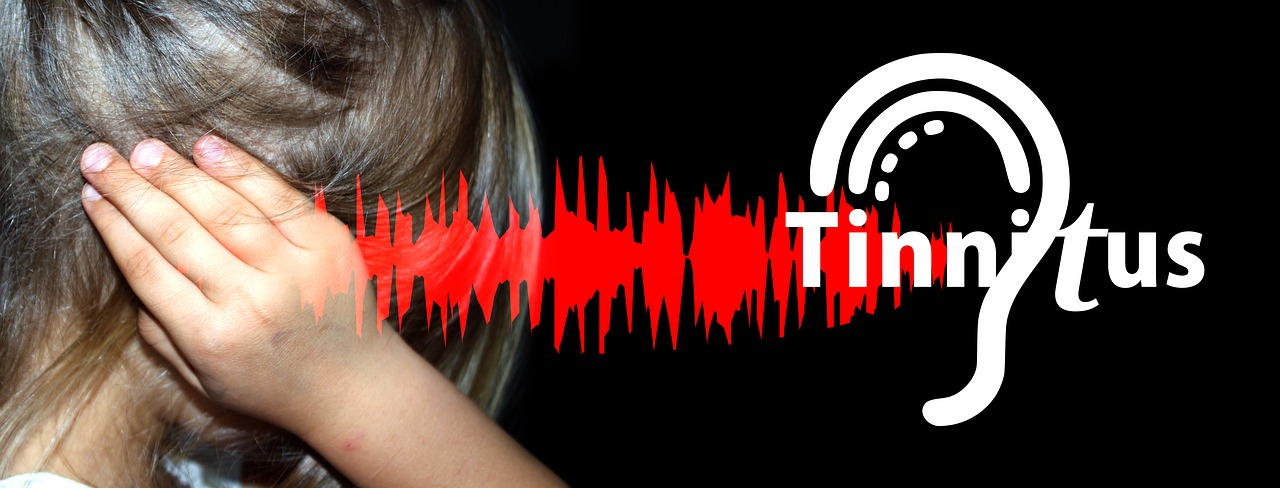
Overview
Tinnitus is generally described as a ringing in the ears, however it can likewise seem like clicking, hissing, roaring, or buzzing. Tinnitus involves viewing noise when no external sound is present. The noise can be very soft or really loud, and high-pitched or low-pitched. Some people hear it in one ear and others hear it in both. Individuals with severe tinnitus may have issues hearing, working, or sleeping.
Tinnitus is not a disease-- it's a sign. It's a sign that something is wrong with your auditory system, that includes your ear, the acoustic nerve that connects the inner ear to the brain, and the parts of the brain that process noise. There are a variety of different conditions that can cause tinnitus. Among the most typical is noise-induced hearing loss.
There is no remedy for tinnitus. Nevertheless, it can be temporary or persistant, moderate or severe, gradual or instant.

The objective of treatment is to assist you handle your understanding of the noise in your head. There are numerous treatments available that can help in reducing the viewed strength of tinnitus, along with its omnipresence. Tinnitus treatments may not be able to stop the perceived sound, but they can enhance your quality of life.
Tinnitus solutions
1. Hearing aids
Most people develop tinnitus as a sign of hearing loss. When you lose hearing, your brain undergoes modifications in the method it processes sound frequencies. A hearing aid is a little electronic gadget that utilizes a microphone, amplifier, and speaker to increase the volume of external sounds. This can mollify neuroplastic modifications in the brain's capability to process noise.
If you have tinnitus, you may discover that the much better you hear, the less you notice your tinnitus. A 2007 survey of doctor released in The Hearing Review, found that roughly 60 percent of people with tinnitus experienced at least some remedy for a hearing aid.

Approximately 22 percent discovered significant relief.
2. Sound-masking gadgets
Sound-masking devices offer an enjoyable or benign external sound that partly hushes the internal noise of tinnitus. The standard sound-masking device is a tabletop noise machine, but there are likewise little electronic devices that fit in the ear. These devices can play white sound, pink sound, nature sounds, music, or other ambient sounds. Many people prefer a level of external sound that is just somewhat louder than their tinnitus, but others choose a masking noise that entirely hushes the ringing.
Some people utilize business sound machines created to assist individuals unwind or go to sleep. You can likewise utilize headphones, television, music, and even a fan.
A 2017 study in the journal Frontiers in Aging Neuroscience
Trusted Source
discovered that masking was most efficient when utilizing broadband sound, such as white sound or pink sound.

Nature sounds proved much less effective.
3. Modified or personalized sound makers
Requirement masking gadgets assist to mask the noise of tinnitus while you are utilizing them, however they have no lasting results. Modern medical-grade devices utilize tailored sounds tailored particularly to your tinnitus. Unlike routine sound makers, these gadgets are just used intermittently. You may experience benefits long after the gadget is shut off, and over time, you may experience long-lasting enhancement in the perceived volume of your tinnitus.
A 2017 research study published in the Annals of Ontology, Rhinology, and Laryngology
Trusted Source
, discovered that personalized noise reduces the loudness of tinnitus and might transcend to broadband sound.
4. Behavior modification
Tinnitus is associated with a high level of emotional stress. Anxiety, stress and anxiety, and insomnia are not uncommon in people with tinnitus. Cognitive behavior modification (CBT) is a type of talk treatment that assists people with tinnitus find out to cope with their condition.

Rather than lowering the noise itself, CBT teaches you how to accept it. The objective is to improve your quality of life and avoid tinnitus from driving you insane.
CBT involves working with a therapist or counselor, typically once weekly, to identify and change negative idea patterns. CBT was at first established as a treatment for anxiety and other psychological issues, but it appears to work well for people with tinnitus. Numerous research studies and meta-reviews, including one released in the Korean Journal of Audiology
Relied on Source
, have discovered that CBT considerably enhances irritation and inconvenience that often comes with tinnitus.
5. Progressive tinnitus management
Progressive tinnitus management (PTM) is a therapeutic treatment program used by the U.S. Department of Veterans Affairs. Tinnitus is one of the most common impairments seen in veterans of the armed services. The loud noises of war (and training) frequently cause noise-induced hearing loss.

If you're a veteran, speak to your local VA health center about their tinnitus treatment programs. You might want to speak with the National Center for Rehabilitative Auditory Research (NCRAR) at the VA. They have a step-by-step tinnitus workbook and instructional materials that might be practical.
6. Antidepressants and antianxiety drugs
Tinnitus treatment typically includes a mix of methods. Your doctor may advise medication as part of your treatment. These drugs might assist make your tinnitus symptoms less frustrating, thereby improving your quality of life. Antianxiety drugs are also an effective treatment for insomnia.
A research study published in Medical Science Monitor
Relied on Source
discovered that an antianxiety drug called alprazolam (Xanax) provides some relief for tinnitus victims.
According to the American Tinnitus Association, antidepressants commonly used to treat tinnitus include:
-
clomipramine (Anafranil)
-
desipramine (Norpramin)
-
imipramine (Tofranil)
-
nortriptyline (Pamelor)
-
protriptyline (Vivactil)
7.

Treating dysfunctions and blockages
According to the American Tinnitus Association, many cases of tinnitus are brought on by hearing loss. Periodically however, tinnitus is brought on by an irritation to the acoustic system. Tinnitus can in some cases be a symptom of a problem with the temporomandibular joint (TMJ). If your tinnitus is caused by TMJ, then a dental procedure or realignment of your bite may ease the issue.
Tinnitus can also suggest excess earwax. Removal of an earwax clog may be enough to make mild cases of tinnitus vanish. Foreign things lodged against the eardrum can likewise cause tinnitus. An ear, nose, and throat (ENT) expert can perform an examination to look for blockages in the ear canal.
8. Exercise
Workout contributes substantially to your total wellness. Tinnitus can be worsened by stress, depression, anxiety, absence of sleep, and health problem. Regular exercise will assist you manage tension, sleep better, and stay much healthier.

9. Mindfulness-based tension decrease
Throughout an eight-week course of mindfulness-based tension reduction (MBSR), individuals develop the abilities to manage their attention through mindfulness training. Traditionally, the program was designed to draw people's attention far from their persistent pain, but it can be similarly efficient for tinnitus.
The similarities between persistent pain and tinnitus have led researchers to develop a mindfulness-based tinnitus tension reduction (MBTSR) program. The results of a pilot study, which were published in The Hearing Journal, discovered that participants of an eight-week MBTSR program experienced considerably modified perceptions of their tinnitus. This consisted of a reduction in anxiety and anxiety.
10. DIY mindfulness meditation
You do not need to enroll in an eight-week program to get started with mindfulness training. Participants in the MBTSR program all got a copy of the groundbreaking book "Full Catastrophe Living" by Jon Kabat-Zinn. Kabat-Zinn's book is the premier manual for practicing mindfulness in daily life.

You will discover, and be motivated to practice, meditation and breathing techniques that can assist draw your focus far from tinnitus.
11. Alternative treatments
There are numerous alternative or complementary tinnitus treatment alternatives, including:
-
nutritional supplements
-
homeopathic solutions
-
acupuncture
-
hypnosis
None of these treatment choices are supported by science. Many individuals are convinced that the herb gingko biloba is valuable, however massive studies have been not able to prove this. There are many dietary supplements declaring to be tinnitus treatments. These are normally a combination of herbs and vitamins, often consisting of zinc, ginkgo, and vitamin B-12.
These dietary supplements have actually not been assessed by the U.S. Food and Drug Administration (FDA) and are not supported by clinical research. Nevertheless, anecdotal reports recommend that they might assist some individuals.
AD
Check your vitamin levels with a micronutrient test
This micronutrient test checks for vitamin B12, D, E, Magnesium, Copper, Selenium & & Zinc.
Get your results in 2-5 days from a recognized laboratory with complimentary shipping, Order today for 30% off.
DISCOVER MORE
When to see your physician
Tinnitus is rarely a sign of a major medical condition. Speak with your medical care physician if you are unable to sleep, work, or hear usually. Your doctor will most likely analyze your ears and after that provide you with a referral to an audiologist and otolaryngologist.
However, if you are experiencing facial paralysis, unexpected hearing loss, foul-smelling drain, or a pulsating sound in sync with your heartbeat, you must go to your local emergency department.
Tinnitus can be exceptionally distressing for some people. If you or someone you like is thinking of suicide, you need to go to the emergency clinic immediately.
 Add Row
Add Row  Add
Add 




Write A Comment